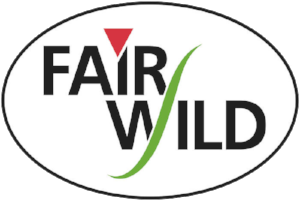FairWild Foundation and GIZ promote sustainable wild liquorice production
Liquorice products are in high demand by the global herbal products industry, as well as for use as cosmetics and food ingredients. Production is therefore of economic importance to the Central Asian countries where Glycyrrhiza spp. are naturally distributed and cultivated.
Liquorice value chains have been chosen as a key topic for the project "Ecologically Oriented Regional Development in the Aral Sea Region" (ECO-ARAL), an initiative implemented by the Deutsche Gesellschaft für Internationale Zusammenarbeit GmbH (GIZ) on behalf of the German Federal Ministry for Economic Cooperation and Development (BMZ).
The ECO-ARAL project supports four regional administrations of the Aral Sea region in Uzbekistan (Republic of Karakalpakstan and Khorezm Oblast) and Kazakhstan (Kyzylorda and Mangistau Oblasts). This support is to increase resource efficiency in different economic sectors, as well as build capacity in the use of GIS in territorial planning. The project disseminates knowledge and raises awareness on the ecological situation in the Aral Sea Region and introduces sustainability measures to the sectors targeted.
In the case of liquorice production – for both cultivated crops as well as wild harvest – the project aims to make processes more sustainable to promote positive ecological effects such as an increase in soil fertility, protection against erosion, and to prevent the reduction of wild liquorice populations.
Between 2022 – 2023, FairWild Foundation and partners will work with GIZ to introduce sustainable harvest methods for wild harvested liquorice value chains in the target regions. Experts from the FairWild Foundation and TRAFFIC will develop capacity building measures for Micro, Small and Medium Enterprises (MSME) on the sustainable harvesting of wild liquorice and introduce the potential for companies to become certified against internationally recognised standards (e.g. FairWild).
Two training workshops will be conducted in the framework of the project: one in Uzbekistan and one in Kazakhstan. Each training will be hands-on for approximately 20 persons involved in the harvesting of wild liquorice (farmers, processors, local population collecting liquorice, liquorice companies etc.). The training will promote the importance of transparency and equity in the liquorice supply chain, as well as help to ensure its sustainability.
The training dates have been set as:
• Uzbekistan (Nukus): October 3-7, 2022 for a period of 5 days. (completed)
• Kazakhstan (Kyzylorda): November 2022, dates TBC. (postponed to 2023)
The training course is open to participation by interested parties, with the possibility of accommodation and transport costs being financed by GIZ.
Following the training, project activities will continue throughout 2023 with the identification of Kazakh and / or Uzbek companies who are interested in the FairWild certification for their wild liquorice products, and provision of support to the selected companies throughout the FairWild certification process.
For more information and to participate in the project activities, please contact the FairWild Secretariat.



